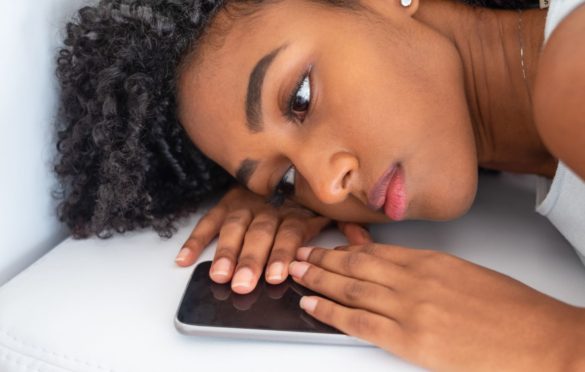Tips to Use Social Media More Positively

If you’re old enough to remember Friendster and Myspace, then you can likely recall a time when social media wasn’t as toxic as it can be today. The first social media platforms were created in the late 1990s and early 2000s to keep humans connected. During those early days, there wasn’t a huge emphasis on advertising, branding, celebrities, or influencers. Instead, social sites were used primarily for keeping in contact with old friends and distant family members.
Fast forward to today, an era where the influence of social media can be seen nearly everywhere. The percentage of Americans who use social media has risen from 5% in 2005 to over 72% in 2019, according to reports from Pew Research Center. Couple those statistics with the creation of the modern-day smartphone – a device that granted our access to the internet 24 hours a day, seven days a week – and it is easy to see how social media use has become so pervasive. What isn’t as immediately apparent is how social media impacts our mental health.
Recent research suggests that social media use exceeding three hours daily can cause anxiety, depression, and other illnesses in adolescents and young adults. Between constant comparisons, fear of missing out, and sleep deprivation due to timeline scrolling throughout the night, kids and adults alike are at risk of increased negative thinking and despair. So how can we use social media more responsibly? And how can we take advantage of the positive purposes of online interactions? Experts recommend implementing the following strategies.
Limit social media use. A study conducted among undergraduates at the University of Pennsylvania found that limiting social media use to 10 minutes per platform per day for three weeks significantly decreased rates of anxiety, loneliness, and depression. Great news for users looking for a more moderate approach to social media management.
Take a break. Nusheen Ameenuddin, MD, MPH, Mayo Clinic pediatrician and chair of the American Academy of Pediatrics Council on Communications and Media, encourages patients and parents to step away from social media if necessary. She adds that “focusing on important things that keep you grounded” may also improve your well-being.
Spread kindness online. CEO and co-founder of Likeable Media, Carrie Kerpen, initiated #BeLikeableDay in 2019, a global movement committed to increasing acts of kindness on social media. Each year on February 26, she encourages social media users to spread kindness online by posting at least one nice thing. Whether paying a compliment to a friend, promoting someone else’s work, or spreading the word about your favorite charity, there are various ways that a small act of thoughtfulness can have a huge impact.
Follow pages that bring joy. Be intentional about what you feed your spirit. Following pages that reiterate positive thoughts, feelings, and vibrations can make the difference in healthy and toxic social media use. Stay away from pages that cause feelings of comparison and inadequacy to arise. You can also block, remove, or mute pages with upsetting content.
Don’t buy into the hype. This one can be easier said than done because it is just so easy to be sucked in by social media attention. We’ve all felt the release of dopamine when our photos are liked by many. However, the problem can arise if we receive criticism or negative feedback online. Refusing to seek validation by examining your post’s content can help address these harmful effects. Are you posting to support yourself or to impress others? Also, be cautious when using photo editing apps, as these can cause you to underappreciate your inner beauty.
Be present in the moment. If we aren’t careful, crafting the perfect social media profile can cause us to miss out on real life. It’s important to recognize when our online presence has overtaken our in-person experience. One way to be mindful is to put away our phones when engaging with others. Enjoy that awesome breakfast, brunch, or dinner first! You can always post the pictures later.
Pay attention to your mental health. Check in with yourself frequently to ensure that social media isn’t negatively affecting your life. Use caution when scrolling, implement a social media curfew before bed, and limit your interaction to pages that uplift your spirit. Monitor your feelings when using social media and take action if they are overwhelmingly negative.
For more ways to use social media positively, follow this link. Love and Hugs!






Dominique Kelly
Ooh limiting time on certain apps is something I need to implement. Especially late at night, if I’m having insomnia. Getting on Instagram will literally send me down a rabbit hole!
RMF
This reminded me it’s about that time to go on an unfollowing spree!